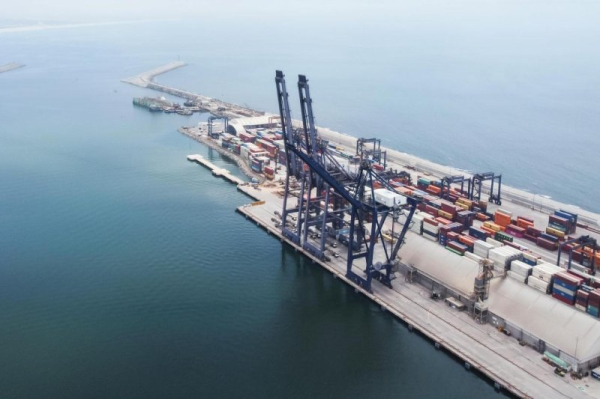

Ships carrying diesel allegedly entered Mexican ports under cargo declarations listing the shipments as oils or industrial additives — products exempt from the Special Tax on Production and Services — instead of fuel. Photo by Jose Parra/Pexels
Mexico’s Attorney General’s Office said at least eight Mexican ports were under the control of fuel smuggling networks working with port authorities.
The office reported Thursday that ships carrying diesel entered Mexican ports under cargo declarations listing the shipments as oils or industrial additives — products exempt from the Special Tax on Production and Services — instead of fuel.
The case that triggered an investigation came in March, when the vessel Challenge Procyon was placed under judicial custody after attempting to bring 10 million liters of diesel illegally through the port of Altamira in Tamaulipas.
The Attorney General’s Office said its investigations have led to nationwide operations and the arrest of numerous suspects. Security and Citizen Protection Secretary Omar García Harfuch confirmed that 14 people were detained as part of a smuggling network operating mainly in Tamaulipas.
Those charged include business executives, active-duty sailors, former customs officials and Vice Adm. Manuel Roberto Farías Laguna, a relative by marriage of Rafael Ojeda Durán, who served as navy secretary under former President Andrés Manuel López Obrador.
During López Obrador’s administration, naval personnel were assigned to civilian duties in ports and customs to combat corruption.
President Claudia Sheinbaum’s government said the first complaint was filed by Ojeda against relatives by marriage, Vice Adm. Manuel Roberto Frías Laguna and Rear Adm. Fernando Frías Laguna.
“The armed forces are great institutions of the Mexican state, and the navy is an institution respected by the Mexican people. It reflects well on the institution that it participated in the investigation, working with the Attorney General’s Office to pursue it to the end,” Sheinbaum said.
In its report, the Attorney General’s Office also said that “at least 555 companies could be linked to allegedly illegal activities” in customs offices nationwide.
The report said “109 stand out for carrying out — apparently legally — the import, export, marketing, distribution, sale and acquisition of fuel,” while also profiting from fuel stolen from Petróleos Mexicanos, or Pemex, pipelines in ports on the Pacific and the Gulf of Mexico.
Losses to Mexico’s treasury and state oil company from fuel smuggling are said to be substantial. Experts estimate that gasoline and diesel smuggling accounts for 30% to 40% of the fuel sold in the country and costs the government more than 150 billion pesos a year.
In 2024 alone, tax evasion from illegal fuel imports deprived the treasury of about 177 billion pesos, or $9.6 billion, equal to 44% of the annual revenue from the special tax on gasoline and diesel.
Petróleos Mexicanos said fuel theft through illegal taps and smuggling cut deeply into its revenue.
Between 2019 and 2024, Pemex estimated cumulative losses of more than 75.7 billion pesos, or $4.09 billion, from pipeline fuel theft, and in 2024 alone the company reported losses of more than 20.4 billion pesos, or $1.1 billion, from these crimes.